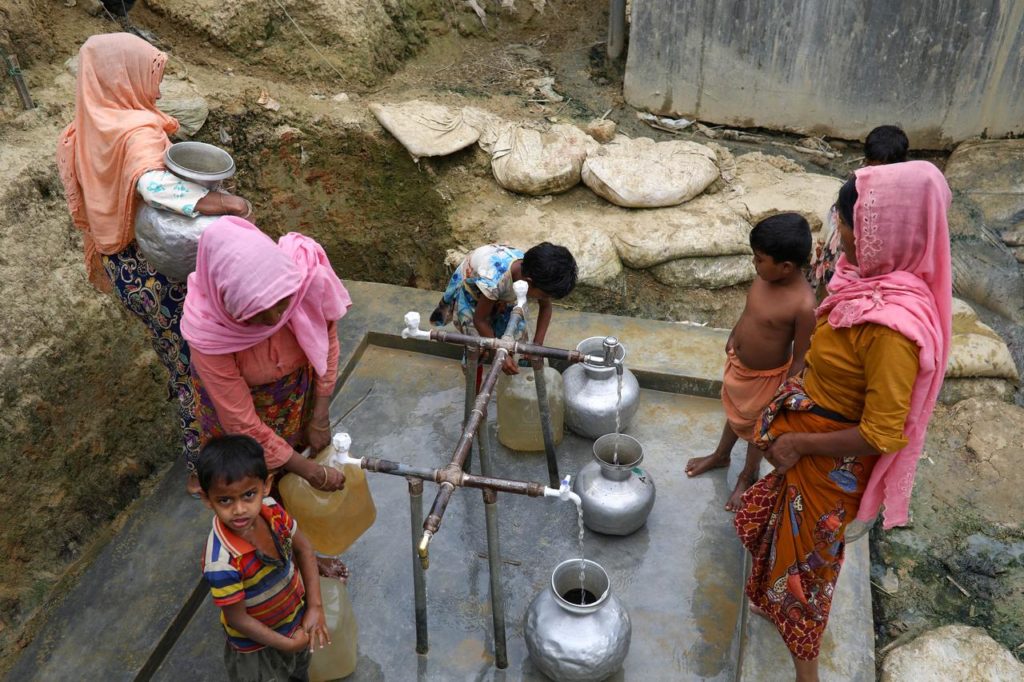Human Rights Calamity: Billions Lack Access To Safe Drinking Water
Apr 24, 2023 | Pratirodh Bureau
Water insecurity – including everything from a lack of drinking water to the threat of homes being swept away – can have serious implications for people’s well-being (Representational Image)
Leaders and authorities recently gathered in New York for the first UN water conference in decades. The hope was that there would be some landmark breakthroughs to ensure that everyone had access to safe drinking water and sanitation.
The UN secretary-general, António Guterres, called for member states to “bring the water action agenda to life” through developing resilient infrastructure, water pipelines and waste water treatment plans and putting in place early warning systems against natural disasters.
But if such pledges are not supported by guaranteed funds as well as legally binding legislation – and they aren’t – they risk undermining the energy and enthusiasm required to achieve the UN’s own sustainable development goal of making access to clean water a human right.
Climate change and related droughts, hurricanes, floods and other extreme weather events are making it harder to access water for human consumption. In some parts of the world such as the Horn of Africa, the wells have run dry and there simply isn’t enough rain any more. The region is experiencing its worst drought for 40 years.
In places where floods are a bigger risk than droughts, such as the US state of Mississippi or parts of Kenya, supplies of fresh water have been contaminated by floodwater filled with agricultural pollutants and industrial chemicals.
Water insecurity – including everything from a lack of drinking water to the threat of homes being swept away – can have serious implications for people’s wellbeing. Flood victims in Pakistan have experienced post-traumatic stress disorder, for instance. All this means clean water has become a source of widespread climate injustice, especially in the most vulnerable countries.
Alarmingly, there are more people now without access to clean water than there were three decades ago. In 2022, the Sate of the World’s Drinking Water report by the WHO, UNICEF and the World Bank, noted that one-quarter of the world’s population is left without access to safe drinking water. People in sub-Saharan Africa haven’t benefited from investment and have the lowest levels of access.
In many poorer countries, access to drinking water is not recognised as a basic human right. Research I published with colleagues on water access in two of those countries, Malawi and Zambia, found that water was neither privatised nor a state provision.
People in these countries instead relied on development aid and donor funding to sink bore holes or provide water pumps in rural areas, and if there was no aid they had to organise clean water themselves on a small community basis. Many pumps and wells do not work, or they are vandalised, and as a result, many find themselves drinking unclean water.
In such countries, there is lots of wrangling between politicians, traditional leaders and communities over who actually owns or should govern water points. Many different actors are involved, including public and private organisations, NGOs, faith-based organsations and donors. This all makes the job of providing water even less straightforward, and coordinating these different actors is paramount.
This lack of coordination, combined with an over-reliance on donors and a lack of local input in decision-making leads me to wonder at what point will access to water actually become a national priority in water insecure countries.
Governments need to take a leading role by facilitating long-term investment in the sector and promoting initiatives which incorporate the right to water access. Solutions to water access should be part of a broader socioeconomic development model which promotes awareness around rights and responsibilities.
Ultimately, the management of water resources lies with the governments, who retain a sovereign duty to ensure the human right to safe drinking water. The water crisis is a climate justice crisis. What is needed is commitment in terms of real funding, not just pledges, to ensure that these basic human rights are exercised with support from the United Nations.
Some good news did emerge from the conference in New York, including calls for the UN to appoint a special envoy for water, and a Water Action Agenda containing 700 commitments. Member states, development banks, large companies and NGOs have all pledged to direct millions of pounds to the water sector.
But just as a village in Malawi might suffer from a lack of coordination between different actors who want to develop a local well, the same problem risks happening on a global scale. What’s really needed is strong leadership so all sectors work collectively to ensure everyone in the world really does have access to clean water.
(This article is republished from The Conversation under a Creative Commons license. Read the original article here)
